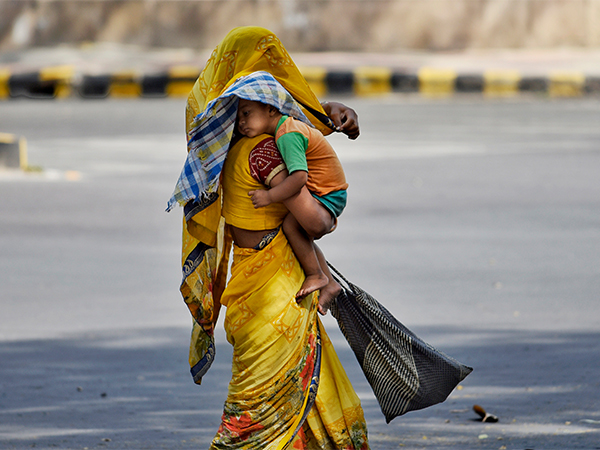Taliban resort to 'ethnic cleansing' in several provinces
Sep 14, 2021

Kabul [Afghanistan], September 14 : The Taliban, which seized power in Afghanistan last month, have "started ethnic and tribal cleansing" in several provinces of the country even as Afghans face an escalating humanitarian crisis, reports said.
They said the Taliban have ordered various non-Durrani Pashtun groups in Kandahar to leave their homes and find another place to live. Taliban are already facing criticism over the massacre of nine ethnic Hazara men in July this year after they took control of Ghazni province.
A Twitter user said the Taliban in Daikundi ordered 300 Hazara families to leave their houses.
"The Taliban have started ethnic and tribal cleansing in several provinces. In Daikundi they ordered 300 Hazara families to leave their houses. In Kandahar, various non-Durrani Pashtun groups have been ordered by the Taliban to evacuate their homes and find another place to live," said Natiq Malikzada, a wirter and journalist.
Another Twitter user said that after women it is the turn of Hazaras to be maligned by the Taliban.
"Women have already been maligned by the #Taliban. Now it's the Hazaras turn. Taliban are still the same, said a retired DSS agent and author who tweets under handle AF-Pak Hand.
Thousands of Pashtuns poured to streets in Kandahar forcing many families out of their private houses in the Firqa area following the Taliban diktat to leave their homes.
Taliban have been more brutal and extreme in areas where they have a tighter grip and face less resistance.
Analyst Shabnam Sharifi Nacimiento said in a Tweet that Afghan citizens are losing out as the Taliban resort to their tactics.
"These are well-planned military tactics to weaken potential uprisings. #taliban lacks the intellectual capacity to think this far alone. The threat is REAL. As every day passes by, #afghans are missing the opportunity to make or break #afghanistan," she said.
A Twitter user Helene Stadlmeyr-Sti said that the Taliban has not changed their colours over the past 20 years.
"Yes, still the same beasts as 20 years ago, if not worse, said Helene Stadlmeyr-Sti.
The Hazara minority in Afghanistan are regularly subjected to targeted killings, violence, and discrimination based on their religious and ethnic identity.
The targeted attacks have increased exponentially and the Hazara minority has been subject to daily violence by the Taliban.
Soon after the Taliban seized much of Afghanistan in a matter of days, the group destroyed and blew up slain Hazara leader Abdul Ali Mazari's statue in Bamiyan, a grim reminder of the destruction of Bamiyan Buddhas during its previous tenure.
International organisations have warned that Afghanistan teeters on the brink of universal poverty.
According to UNDP appraisal, as much as 97 per cent of the population is at risk of sinking below the poverty line unless a response to the country's political and economic crises is urgently launched.
The study, which analysed four potential scenarios of escalating intensity and isolation, indicated that real GDP could contract by as much as 13.2 per cent, leading to an increase in the poverty rate of up to 25 percentage points.
According to the appraisal, a combination of factors could cause the baseline poverty rate, now at 72 per cent, to balloon.
Taliban had earlier announced a "general amnesty" for all Afghan government officials and urged them to return to work, including women corresponding with Sharia law. But the older generations remember the ultraconservative Islamic regime that saw regular stoning, amputations and public executions during Taliban rule before the US-led invasion that followed the September 11, 2001, terror attacks.
The Taliban have ruled in accordance with a harsh interpretation of Islamic law and though the outfit has sought to project greater moderation in recent years, many Afghans remain sceptical in the beleaguered and impoverished country.




















